The Rice University Campbell Lectures
OTHER BOOKS IN THE SERIES
Thousands of Broadways (2009)
BY ROBERT PINSKY
The Writer as Migrant (2008)
BY HA JIN
Shakespeares Freedom
STEPHEN GREENBLATT
THE UNIVERSITY OF CHICAGO PRESS :: CHICAGO AND LONDON

The University of Chicago Press, Chicago 60637
The University of Chicago Press, Ltd., London
2010 by The University of Chicago
All rights reserved. Published 2010.
Paperback edition 2011
Printed in the United States of America
19 18 17 16 15 14 13 12 11 2 3 4 5
ISBN-13: 978-0-226-30666-7 (cloth)
ISBN-13: 978-0-226-30667-4 (paper)
ISBN-10: 0-226-30666-6 (cloth)
ISBN-10: 0-226-30667-4 (paper)
ISBN-13: 978-0-226-30668-1 (e-book)
Library of Congress Cataloging-in-Publication Data
Greenblatt, Stephen, 1943
Shakespeares freedom / Stephen Greenblatt.
p. cm.
Includes bibliographical references and index.
ISBN-13: 978-0-226-30666-7 (cloth : alk. paper)
ISBN-10: 0-226-30666-6 (cloth : alk. paper)
1. Shakespeare, William, 15641616Criticism and interpretation. 2. Shakespeare, William, 15641616Political and social views. 3. Shakespeare, William, 15641616Philosophy. 4. Authority. 5. Intellectual freedom. 6. Freedom of expression. I. Title.
PR2976.G738 2010
822.3'3dc22
2010018917
 This paper meets the requirements of ANSI/NISO Z39.48-1992 (Permanence of Paper).
This paper meets the requirements of ANSI/NISO Z39.48-1992 (Permanence of Paper).
To Charles Mee
Contents
Illustrations
{ COLOR PLATES }
{ FIGURES }
Acknowledgments
At the beginning of The Merchant of Venice, the prodigal Bassanio is worrying about how he can, as he puts it, get clear of all the debts I owe. If I have no comparable worry, it is only because I do not imagine for a minute that I can ever get clear of my debts and because I am grateful for having incurred them. Jeffrey Knapp read through the whole manuscript with characteristic wit, critical acumen, and generosity. I received many valuable suggestions from Timothy Bahti, Alan Dessen, and Paul Kottman, as well as from Alan Thomas, the editorial director for humanities at the University of Chicago Press, the copy editor Joel Score, and the Presss anonymous readers. For years now Homi Bhabha, Joseph Koerner, Thomas Laqueur, Robert Pinsky, and Moshe Safdie have been sustaining intellectual influences upon me, as well as cherished friends.
At the Institut fr Sozialforschung at the Johann Wolfgang Goethe-Universitt in Frankfurt, where three of these chapters had their genesis as the Adorno Lectures, I was hosted by Axel Honneth, whose introductions, questions, and comments were at once gracious and probing. Sidonia Blttler and Sandra Beaufays at the Institut, along with Klaus Reichert, Eva Gilmer, Carolin Meister, Roger Ldeke, and Verena Lobsien, also helped to make my stay a richly memorable one. The Adorno Lectures were published by Suhrkamp Verlag, in a translation by Klaus Binder, as Shakespeare: Freiheit, Schnheit, unddie Grenzen des Hasses. Two other German institutions deserve special mention. The first is the Carl Friedrich von Siemens Stiftung in Munich, to whose director Heinrich Meier I am indebted for avery stimulating visit. The second is the Wissenschaftskolleg zu Berlin, which for almost fifteen years has been my intellectual second home. I am particularly indebted there to Horst Bredekamp, Reinhart Meyer-Kalkus, Luca Giuliani, Wolf Lepenies, and Raghavendra Gadagkar.
A revised version of the Adorno Lectures became the core of the Campbell Lectures at Rice University and hence the core of the current book. I am grateful for gracious hospitality to Dean Gary Wihl, along with Christine Medina, Robert Patten, and the members of the Rice English Department. It was especially pleasant to get to know Sarah Campbell and other members of the Campbell family, who had such a gratifyingly lively engagement in the occasion they had sponsored.
I have been fortunate to present pieces of this book as lectures on many other occasions, from every one of which I have received valuable suggestions, questions, and alternative perspectives. Among these occasions, I want to mention the Shakespeare Association of America annual meeting, held in Bermuda in 2005; the Una Lecture at the University of California, Berkeley; the Ropes Lecture at the University of Cincinnati; the Thatcher Lecture at Marin Academy; the Haley Lecture at Phillips Exeter Academy; the Stanley Fish Lecture at the University of Illinois at Chicago; the Meryl Norton Heart Lecture at the University of Northern Iowa; and the Jane Ruby Humanities Lecture at Wheaton College, as well as presentations at the University of Hawaii; the University of Utah; the University of Nevada, Las Vegas; the University of Science and Arts of Oklahoma; the University of Connecticut in Storrs; the Morgan Library; the University of Texas, Austin; the Dallas Museum of Art; the University of Wisconsin, Madison; Boston University; the Hathaway Brown School; Elizabethtown College; Davidson College; Austin College; Providence College; the University of Queens, Ontario; Emory University; Grand Valley State University; the New School; the Yale Legal Theory Workshop; and my own university, Harvard. I was greatly honored as well to present some of this work as the Leslie Stephen Lecture at the University of Cambridge, the Royal Irish Academy Discourse in Dublin, and the Aptullah Kuran Memorial Lecture at Bogazici University in Istanbul, and at the Alfred Herrhausen Gesellschaft fr Internationalen Dialog, Berlin; the Winfried Fluck Conference, Berlin; the Central European University, Budapest; the Nations Unlimited Festival, Stavanger, Norway; the Venice Center for International Jewish Studies; the Bibliotheca Alexandrina in Alexandria, Egypt; the University of Rome (Roma Tre); Pembroke College, Cambridge; the Spanish and Portuguese Society for English Renaissance Studies in Oporto, Portugal; the University of Warsaw; and the Institute for Doctoral Studies in the Visual Arts, Siena. I owe thanks to many people, both good friends and perfect strangers, at these and other institutions. A full listing would be very long indeed, but I would feel remiss were I not at least to acknowledge my gratitude to David Baker, Shaul Bassi, David Bevington, John Bowers, Dympna Callaghan, Richard and Rosalind Dearlove, Margreta de Grazia, Heather DuBrow, Edhem Eldem, John Feaver, Nilufer Gole, the late Gordon Hinckley, Christopher Hudgins, Bernhard Jussen, Louis Menand, Paul Morrison, Vincent Pecora, Istvan Rv, Ismail Seregeldin, Debora Shuger, James Simpson, Molly Easo Smith, Quentin Skinner, Teller, Nicholas Watson, Barry Weller, Charles Whitney, and Suzanne Wofford. I have received valuable research and manuscript assistance from Christine Barrett, Sol Kim Bentley, Rebecca Cook, Kelly Haigh, Beatrice Kitzinger, Emily Peterson, Joel Score, and Ben Woodring.
My deepest gratitude is to my three sons, Josh, Aaron, and Harry, and to my beloved wife Ramie Targoff. Ramie cannot be held responsible for anything that is amiss here, but, since we took pleasure together in talking through virtually everything in these pages, she should share the credit for whatever has any merit.
I am delighted to dedicate this book to a close friend and gifted playwright, Charles Mee.
{ CHAPTER ONE }
Absolute Limits
Shakespeare as a writer is the embodiment of human freedom. He seems to have been able to fashion language to say anything he imagined, to conjure up any character, to express any emotion, to explore any idea. Though he lived his life as the bound subject of a monarch in a strictly hierarchical society that policed expression in speech and in print, he possessed what Hamlet calls a free soul. Free, a word that with its variants Shakespeare uses hundreds of times, means in his work the opposite of confined, imprisoned, subjected, constrained, and afraid to speak out. Those who are called free are unimpeded and untramelled, generous and magnanimous, frank and open-minded. It is not only in hindsight that we recognize such qualities in Shakespeare. He was, said his friend and rival Ben Jonson, of a remarkably open and free nature.
Next page
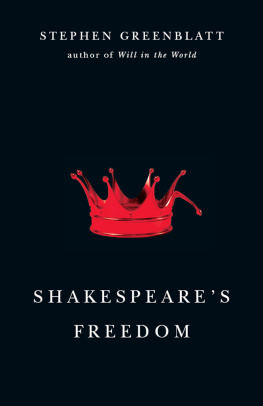
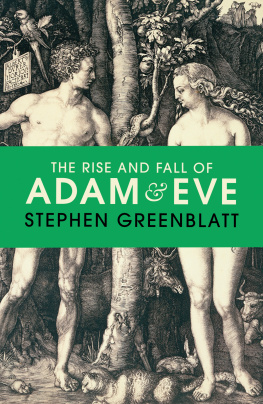
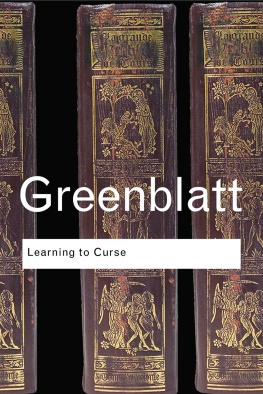
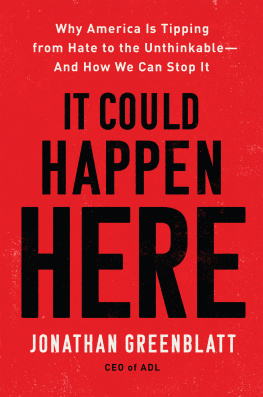

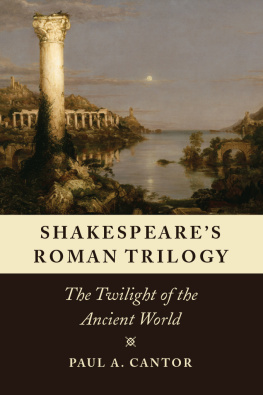
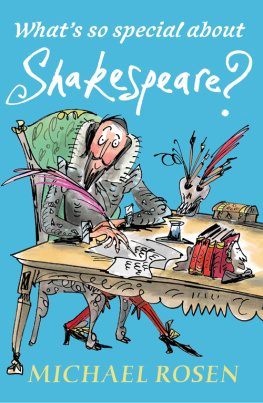

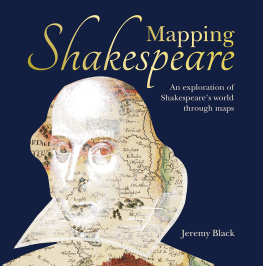
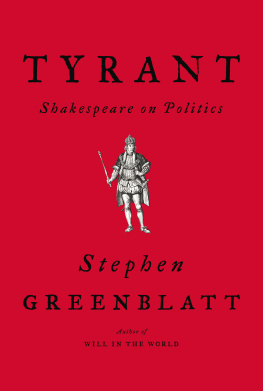
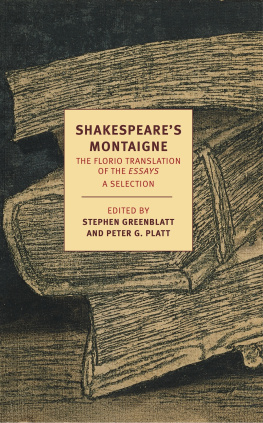
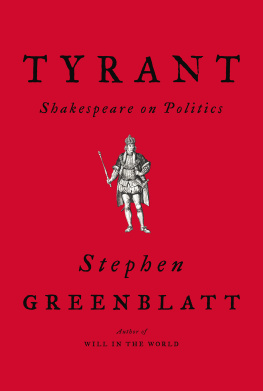
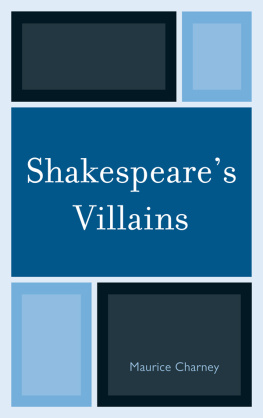

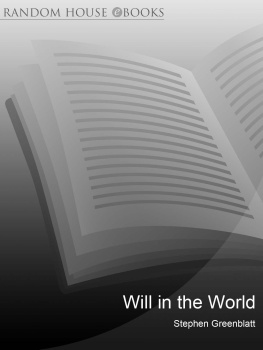

 This paper meets the requirements of ANSI/NISO Z39.48-1992 (Permanence of Paper).
This paper meets the requirements of ANSI/NISO Z39.48-1992 (Permanence of Paper).